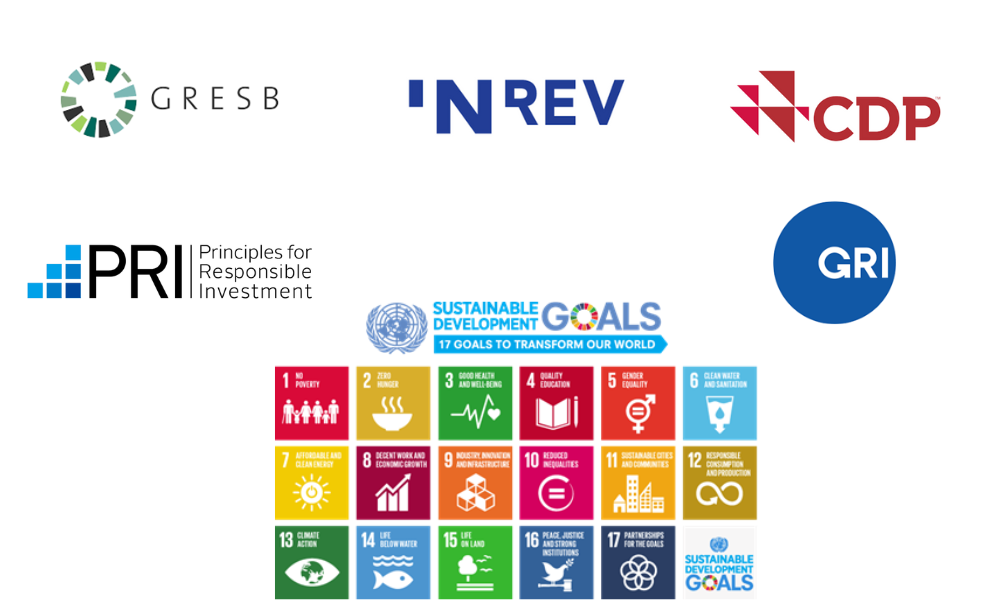Our industry is engaged in an important dialogue to improve sustainability through ESG transparency and industry collaboration. This article is a contribution to this larger conversation and does not necessarily reflect GRESB’s position.
In an increasingly interconnected world, there’s been a remarkable surge of interest in Environmental, Social, and Governance (ESG). This growing awareness stems from the urgent recognition that we must take swift and decisive action to prevent global climate disaster. Today, we find ourselves at a critical juncture, where the choices we make have the power to shape the trajectory of our planet and the wellbeing of future generations.
Within the realm of ESG, social responsibility and strong corporate governance have come under the microscope. Companies are now under increased scrutiny to enhance community development, employee wellbeing, and risk control procedures. This closer examination compels companies to adopt a comprehensive approach that encompasses sustainable practices and ethical decision-making.
ESG reporting serves as a transparent means for companies to communicate their progress and performance in ESG to help investors, customers, NGOs, and the public to make well informed decisions based on ESG considerations.
Understanding ESG performance reporting: mandatory and voluntary disclosures
ESG performance reporting can be categorized into two main types:
- Mandatory reporting: Companies provide necessary disclosures to meet regulatory and legislative requirements
- Voluntary reporting: Companies step beyond mandatory obligations and voluntarily report to frameworks and assessments, demonstrating their commitment to transparency
Regulations and legislation differ from country to country, so some companies must meet multiple legislative and regulatory requirements when submitting ESG performance reports. This diverse landscape necessitates companies to navigate and comply with different reporting frameworks.
However, some companies may not be subject to any mandatory reporting requirements. Nevertheless, they may still choose to voluntarily report by adhering to regulatory and legislative disclosure requirements and/or voluntary frameworks. In doing so, these companies proactively engage in transparent reporting practices, showcasing their commitment to ESG principles and fostering trust with stakeholders.
Whichever way you slice it, standards and frameworks provide companies with a foundation for consistent and comparable disclosure. Frameworks establish the structure of the report, while standards ensure the content of the report meets specific criteria. This synergy results in consistency over time for meaningful comparisons across different companies and geographical locations. By adhering to these standards and frameworks, companies enhance the credibility and reliability of their ESG reports.
Exploring approaches to ESG performance reporting
Mandatory reporting involves guidelines and requirements established by regulatory bodies. On the other hand, navigating the landscape of voluntary reporting frameworks can be overwhelming, as numerous acronyms and options exist. Within the realm of voluntary reporting, there are various approaches to reporting ESG performance, including:
- ESG Reporting Frameworks/Standards, such as the European Association for Investors in Non-Listed Real Estate Vehicles (INREV) and the Global Reporting Initiative (GRI), offer guidance on how to effectively and transparently report ESG performance and progress. These frameworks provide a structured approach for companies to incorporate ESG considerations into a formal ESG report.
- ESG Benchmarks, Ratings, and Indices, such as the Global Real Estate Sustainability Benchmark (GRESB) and the Climate Disclosure Project (CDP), evaluate and assess evidence of ESG performance. These benchmarks provide valuable peer comparisons, helping stakeholders make informed decisions by offering insights into a company’s ESG practices and performance.

- Global and Industry ESG Goals and Principles, such as the United Nations-supported Principles for Responsible Investment (UNPRI) and the United Nations Sustainable Development Goals (UN SDGs), provide a framework to align ESG priorities. These goals and principles serve as a guide for companies to address relevant ESG issues and demonstrate their contributions to the broader ESG landscape. By aligning with these global and industry standards, companies can showcase their commitment to sustainable practices and contribute to the achievement of broader sustainability objectives.
Getting started with effective ESG reporting
Effective ESG reporting offers multiple benefits, including transparently disclosing ESG performance and enhancing your company’s reputation. Moreover, it enables your company to identify ESG-related risks and opportunities.
But where to start?
To embark on your ESG reporting journey, a good starting point is to identify the frameworks and standards that resonate with your business and overall ESG mission.
Thoroughly researching the chosen framework/standard guidelines should follow, along with the collection of required data and information. It’s also important to recognize that ESG reporting is an ongoing process, and it will evolve over time to reflect changing material ESG matters and evolving strategies. Rome wasn’t built in a day! Embracing continuous improvement allows for a more robust and effective ESG reporting approach going forward.
Happy ESG reporting!
Written by Poppy Seddon, Sustainability Consult at EVORA Global.


